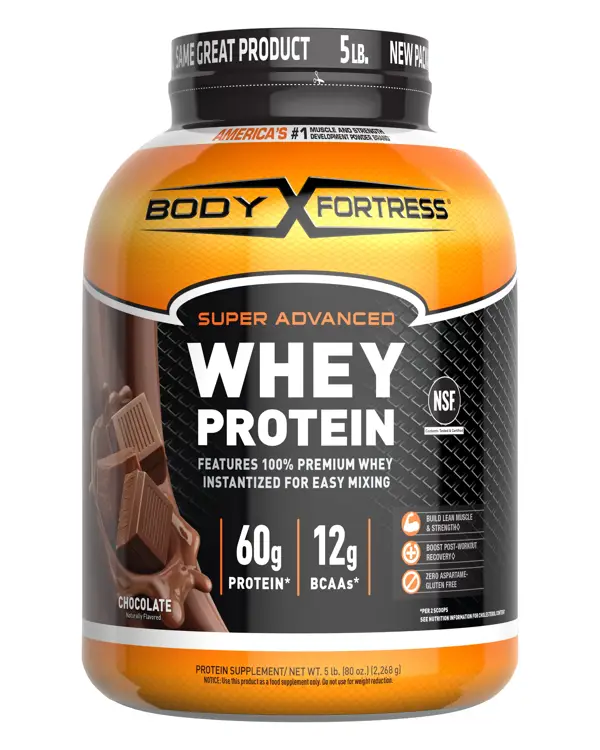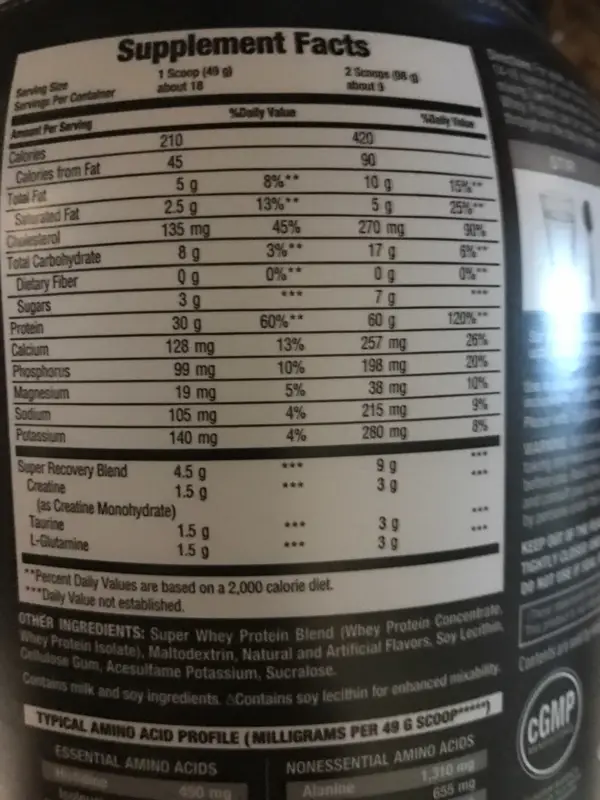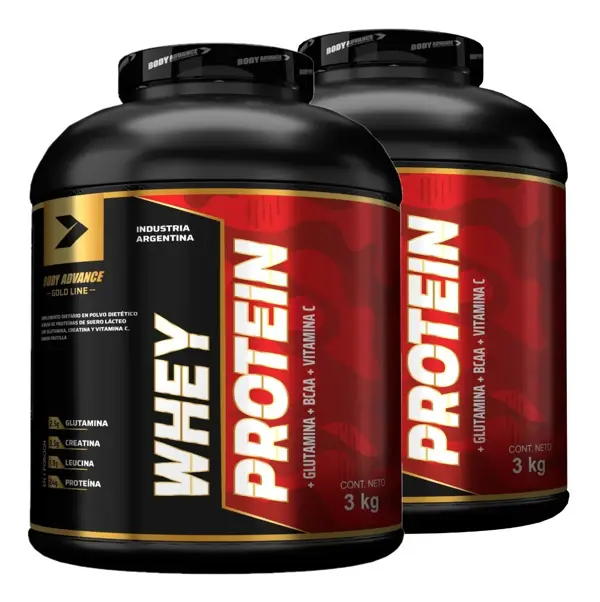Table of Contents:
- Benefits of Whey Protein
- Types of Whey Protein
- How to Use Whey Protein
- Side Effects of Whey Protein
- Myth Busters
- Whey Protein Recipes
- Conclusion
Benefits of Whey Protein
Whey protein is a complete source of protein that contains all essential amino acids, making it a great option for muscle building and recovery.
Types of Whey Protein
There are three main types of whey protein: whey protein weight whey protein isolate, and whey protein hydrolysate, each with its own unique benefits and protein content.
There are three main types of whey protein: whey protein concentrate, whey protein isolate, and whey protein hydrolysate.
1. Whey Protein Concentrate
Whey protein concentrate is the most common form of whey protein and contains varying levels of protein (typically around 70-80%), along with some fat and lactose. It is a cost-effective option and still provides many of the benefits of whey protein.
2. Whey Protein Isolate
Whey protein isolate undergoes further processing to remove more fat and lactose, resulting in a product that is over 90% protein. It is a good option for those who are lactose intolerant or looking for a higher protein content per serving.
3. Whey Protein Hydrolysate
Whey protein hydrolysate is pre-digested, meaning it has undergone partial hydrolysis to break down the protein into smaller peptides. This form of whey protein is often easier to digest and absorb, making it a good option for those with digestive issues or who want faster absorption.
Is Whey Protein Good for Your Body?
Whey protein is a complete protein source, meaning it contains all essential amino acids that your body needs. It is easily digested and absorbed, making it a convenient and effective way to increase protein intake. Whey protein has been shown to help support muscle growth, weight loss, and overall health when combined with a balanced diet and regular exercise.

How to Use Whey Protein
Whey protein can be consumed as a post-workout shake, added to smoothies, or used in baking to increase protein intake and support muscle growth.
Whey protein is a popular supplement among athletes and fitness enthusiasts due to its high protein content and easy digestibility. Here are some tips on how to incorporate whey protein into your diet:
- Choose a high-quality whey protein powder that suits your dietary needs and goals.
- Measure out the recommended serving size according to the instructions on the packaging.
- Mix the whey protein powder with water, milk, or a smoothie for a quick and easy post-workout recovery drink.
- Consider using whey protein in recipes such as protein pancakes, protein shakes, or protein bars for added nutritional benefits.
- Consult with a healthcare professional or nutritionist to determine the appropriate dosage and timing for your individual needs.
Is Whey Protein Good for Your Body?
Whey protein is a complete protein source that contains all essential amino acids necessary for muscle growth and repair. It can help support weight loss, muscle recovery, and overall fitness goals when used as part of a balanced diet and exercise regimen. However, it is important to use whey protein in moderation and consult with a healthcare professional if you have any underlying health conditions.

Side Effects of Whey Protein
While whey protein is generally safe for most people, some individuals may experience digestive issues or allergies to whey protein, so it's important to consult with a healthcare professional before starting supplementation.
While whey protein is generally considered safe for most people, it can cause some side effects in certain individuals.
Common side effects of whey protein may include:
- Digestive issues such as bloating, gas, and diarrhea
- Allergic reactions in individuals who are lactose intolerant or have milk allergies
- Potential kidney damage in individuals with pre-existing kidney conditions
It is important to consult with a healthcare professional before starting any new supplement regimen, including whey protein. They can help determine if whey protein is right for you and advise on the appropriate dosage to avoid potential side effects.
Overall, when taken in moderation and in accordance with your individual health needs, whey protein can be a beneficial addition to your diet and fitness routine.

Myth Busters
There are several myths surrounding whey protein, including the belief that it will make women bulky or cause kidney damage. In reality, whey protein is a safe and effective way to increase protein intake and support muscle growth.
There are a lot of misconceptions and myths surrounding whey protein and its impact on our bodies. Let's debunk some of them:
Myth #1: Whey protein is only for bodybuilders
While it is true that many bodybuilders use whey protein as a supplement to support muscle growth, it can also be beneficial for the general population. Whey protein is a complete protein, meaning it contains all essential amino acids that our bodies need. It can help with muscle recovery, weight management, and overall health.
Myth #2: Whey protein can make you bulky
Contrary to popular belief, consuming whey protein alone will not make you bulky. Building muscle mass requires a combination of strength training, proper nutrition, and sufficient protein intake. Whey protein can support muscle growth, but it will not magically make you bulk up overnight.
Myth #3: Whey protein is bad for your kidneys
There is no scientific evidence to support the claim that whey protein is bad for your kidneys. In fact, whey protein can be a safe and effective protein source for most people, including those with kidney issues. However, it is always recommended to consult with a healthcare provider before adding any new supplement to your diet.
In conclusion, whey protein can be a valuable addition to a balanced diet and can provide numerous health benefits. Remember to consume it in moderation and consult with a healthcare professional if you have any concerns about incorporating whey protein into your routine.

Whey Protein Recipes
Get creative in the kitchen with these delicious whey protein recipes, from protein pancakes to protein-packed smoothie bowls.
Whey protein is a high-quality protein that is easily digestible and quickly absorbed by the body. It is a popular supplement among athletes and fitness enthusiasts for muscle building and recovery.
Here are some delicious whey protein recipes that you can try:
Whey Protein Smoothie
Blend whey protein powder with your favorite fruits, yogurt, and almond milk for a nutritious and satisfying post-workout drink.
Whey Protein Pancakes
Mix whey protein powder with eggs, oats, and banana to make fluffy and protein-packed pancakes for a healthy breakfast option.
Whey Protein Energy Bites
Combine whey protein powder with peanut butter, oats, and honey to create bite-sized snacks that are perfect for on-the-go energy.
Remember to consult with a healthcare professional before incorporating whey protein into your diet, especially if you have any existing health conditions.
Enjoy these whey protein recipes as part of a balanced diet and active lifestyle for optimal results!

Conclusion
Whey protein is a versatile and convenient source of protein that can help support muscle growth, recovery, and overall health when used as part of a balanced diet and active lifestyle.
Key Takeaways:
- Whey protein is a complete source of protein with all essential amino acids.
- There are different types of whey protein, each with its own benefits.
- Whey protein can be used in a variety of ways, from shakes to baking.
- Consult a healthcare professional before starting whey protein supplementation.
- Don't believe the myths - whey protein is safe for both men and women.
Frequently Asked Questions:
- Is whey protein suitable for vegetarians?
- Can whey protein help with weight loss?
- What is the best time to consume whey protein?
- Are there any potential side effects of whey protein?



Recent Comments